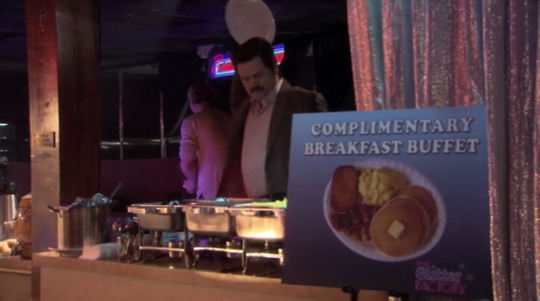Bal, 16, lot weird. My secondary anime/muse blog is spirited-animuse.
Don't wanna be here? Send us removal request.
Text
I can't believe it's already 2017
Guys I’m crying omg I was drunk please stop reblogging this
684K notes
·
View notes
Photo

I get a lot of questions about how I take my lecture notes, and so I thought a quick post might be helpful! I’ve said many a time that I don’t do anything too complex with my notes, nor do a re-write them - but this system really works well for me!
The Basics
First off, I write all my lecture notes in black pen. Sometimes this is a Bic pen, sometimes a Sharpie Fineliner. My highlighters are the Zebra Mildliners. I don’t underline and highlight my notes until after the class, usually the next day. This allows me to focus more in class and gives me an opportunity to review the information at a later date.
Structure
At the top of the page I’ll always write the date in full and the name of the module that those notes are for, followed by title for that lecture. Underneath, you can see that I’ve devised a colour coding system with highlighters. I usually do ‘citations’, ‘examples’ and ‘important info’, but this may vary depending on the lecture content, so I do this step after I’ve completed the notes.
Subheadings
Each section of the lecture is given a subheading, which I will underline - again after the class has ended, usually at home. I use the subheadings which feature on the PowerPoint, but rather than writing the information shown on those I base my notes off of what the lecturer is saying.
Indentations
I indent my writing for examples and for the text that follows them, as you can see with ‘the diggers’ and my definitions of the green economy. I find this makes it much easier to identify and follow as you re-read your notes.
Symbols and Shorthand
I use little right-angle arrows like you can see at the top of the page for my ‘follow through points’, which act as consequences for the point that is mentioned above. I will use three dots {like this ∴ } as a symbol for ‘therefore’. It concludes the points that I have made and is usually based off of how the lecturer has summarised the point they are making. This makes my notes much more coherent.
I hope this has been informative and has maybe given you a few ideas on how to do your own lecture notes! xo
17K notes
·
View notes
Text
How I Keep My Notes (Specifically English Lit and History)
abritishstudyblr I tend to ramble a lot, so my explanation of how I keep my A Level notes wouldn’t fit in a message I’m sorry I hope this is okay too!
So how you’ll want to take notes might vary depending on how your sixth form teachers work. At the start of the year I had one notebook per subject, but my history teacher is a HUGE fan of handouts, and my english teacher often gave us booklets on the course that we would need to bring in every lesson. So between these handouts, rough notes, and separate sheets of paper for homework, I had to switch to folders very quickly.
(FYI having to switch my storage method sent me into a very minor meltdown and I was panicking about it for an entire weekend. So I just want you guys to know that it is a-okay, and advisable to explore different methods of note keeping. If you’ve been at a secondary school where you were given schoolbooks and strict note guidelines, having your own choice over it all is a major learning process. And that’s okay!)
Anyway! I have one A4 folder per subject, relatively small but big enough to keep the relevant module work I’ll need for class in. At home I have one huge lever-arch folder with many dividers. In the lever-arch folder I keep work I no longer need in class, neat notes, and all my revision resources. Your sixth form teachers might do this very differently to mine, but in all my classes at the start of each module I would get a booklet full of all the most basic information I’d need for lessons. I would put these booklets into my folder and UNSTAPLE them. Then I could insert my own notes into the relevant section of the “booklet”. This way I could group my notes/extra reading on a topic together with any teacher handouts on the topic. I find this particularly useful in history, where I can group my notes by specific time-period.
tl;dr - - If your teachers are big fans of handouts, you’re gonna want subject specific folders to avoid carrying unnecessary stuff around. - Keep one large, lever-arch folder at home to store EVERYTHING IN NEATLY. This makes revision a lot easier because all your material is in one place. - I personally do not recommend separate subject notebooks seriously. Take a refill pad, or a notebook with plenty of nice quality HOLE-PUNCHED paper that you can easily tear out and put into your folder. (I used Oxford Campus last year and I still have spare paper.) You wouldn’t believe how much having just one notebook lightens your bag. - Hole punch, hole punch, hole punch if your teachers are like mine this little guy is your new best friend.
I hope that’s helped at all. I can do a better post with some pictures if you like but I think we’ve all established my phone camera is terrible.
31 notes
·
View notes
Text
Making it through your A-Levels!
Sorry it’s taken a while to make this post but here goes��
Picking your subjects- this can be tricky, if you know what you want to do/be in the future it may be clear cut, if you’re unsure then you’ve got a lot more thinking to do. So my top tip would be pick a subject that you are interested in and enjoyed during your GCSEs so that studying it in depth will keep you motivated and stop you becoming bored. Also if you are unsure about your future career try and go for a broad range of subjects and choose a science subject/ a humanities subject / an art subject.
Teachers- get to know your teachers! They will potentially be with you for 2 whole academic years, they’ll be there with you through the ups and downs. Be polite, courteous and respectful to all of them.
Go to your form tutor slots- I can’t stress this enough! I was assigned a tutor who’d be with me for the whole 2 years and who would eventually write my university reference. How can they write such a personal thing when they’ve never even seen or spoken to you?!
Lessons- go to them. Yes, some people manage to make it through with good grades but barely attend any lessons- this isn’t the case for the majority of us! Get your syllabus and mark schemes early so you know exactly what to revise and what to focus on. During lessons don’t try to write everything down- there’s isn’t enough time. Use teacher hand outs and add to them, keep a spare workbook dedicated to key terms and also add to lesson notes when you get home through personal study.
Free periods- please use them productively, but if you need to rest because it’s a heavy day do so. You are in college now, you are being trusted with your own time and there won’t be anyone to chase you if you’re not working. I liked to camp out in the library or in my photography classroom because it was a nice quiet place to study.
Keeping organised- folders. Folders for every subject! I took notes in a pucca pad then transferred them to a folder after class and added in extra notes that I needed to make. For biology and chemistry I also had a separate key terms workbook that had definitions in and for maths I had a dedicated workbook for my homework exercises. For all of my class notes I always wrote the date in the right hand corner, the unit in the left hand corner and the title in the middle, so it was easy to find if I needed to look up a certain piece of work.
Revision- dum dum dum. Past papers for subjects that you can use past papers for. It’s all well and good making pretty notes but if you don’t understand the material and how to apply this to a question how will you get good marks?! Study the last papers and look for trends or questions that appear every year (e.g. Biology always had a question on bias this was an easy 1-2 marks). Attend all your mocks and ask to go through areas with your teacher that you are unsure of. Again I make the point that it’ll be you approaching teachers for help- there’s no chasing in independent learning. Find a style that you find easiest to study with, there are loads of online tests which show you what type of learner you are. With subjects that don’t have past papers (e.g. Art) pay attention to any practice exams you may have and use coursework as a strong foundation for getting good marks.
Exams and grades- *sigh* take it from someone who has experienced what it is like to mess up in exams and get marks well below what I needed. All is not lost in this case, pick yourself up, keep going and find out how you can improve! At this point on your life your path is not set in stone so don’t be disheartened if things do not go your way. HAVE A PLAN B! During exams all I can say is read the questions twice, answer the ones you can first then go back to the ones you’re struggling with. Keep and eye on the time and remember they do not negatively mark in these exams so just write what you know.
Asking for help- don’t be scared to approached peers, older siblings, teachers or teaching assistants for help. Everyone wants you to do well so speak up if you’re having difficulties. Also attend any extra sessions that might be put on to help students (I spent many hours crying at my maths teacher in the homework club. I learnt that I suck at maths).
Friends- oh my gosh friends. This might be difficult if you’ve attended a college separate to your school or if people have left to go elsewhere. Don’t worry. You will find a like minded group of people to work with because everyone’s taking that subject for the same reason- they want to be there. Form study groups, attend clubs and do non work related things for a break!
Clubs and extracurriculars- do it. Find something you enjoy and go for it! College tends to have a few more options than school does. I took a professional development course for those interested in healthcare, a health ethics class and also attended hospital work experience through the college. Grab every opportunity you can, especially if it relates to your career choice.
And last but not least, enjoy yourself! It’s 2 years that will fly by and leave you with wonderful memories.
33 notes
·
View notes
Text
diaryofastudygirl’s survival guide to starting college/sixth form

A Levels are so different to GCSEs, and no one really prepares you for the change and step up from GCSEs (or any other type of exam at this stage) to A Levels, so here are a few things I wish someone would have told me.
1. A Levels are hard.
I mean, no one thinks they’re easy (they literally mean advanced level) it’s just no one tells you just how much detail is involved. Yes, you’re doing fewer subjects, but each subject goes into more detail than you can imagine. I’m not saying this to scare anyone or make them feel anxious (and if i have done that then I apologise profusely!) but when I first started my AS Levels, the first few months were particularly hard, and I think that’s mainly down to A Levels needing more independent work (especially if you’re going to college.) Which leads on to number 2.
2. You need to put the extra work in…
No?! Really?! Well it’s obvious that you’re going to need to do your homework, as well as extra revision. I found that going over the day’s notes for a couple of hours (in short bursts) after college really helped (as I learned in psychology that memory is improved if you review new information within the 24 hours after learning it.)
3. …but you also need to relax and take breaks.
This is where the mental health part comes in. You physically and mentally won’t be able to last the year if you don’t make time for yourself. Revising is good for your studies, but doing it too often or for too long without taking breaks can really harm your mental health. You need to make sure you sleep, make sure you’re eating right and regularly and also, importantly you are exercising. For me, I found splitting my time difficult to begin with and all I did was revise. However, once I’d settled in I created time for myself, doing homework after school, eating, going to the gym and then going over the day’s notes, before relaxing and going to bed… early!!!
4. Friends are important.
A few people have asked me about making friends and feeling too shy to put themselves out there and be confident around new strangers - you’re not alone. Everybody who is starting college will feel nervous about meeting new people. Nobody likes to be hated, right? But once you get your timetable you’ll find that you’re in the same classes as some people, as people *tend* to take A Levels that compliment each other, for example I had every lesson with a boy in my AS year except for sociology. This usually helps as you’re able to compare notes, or ask each other about things you were unsure of in class. It also helps socially as you’re able to make friends. Luckily for me, I go to sixth form (college attached to a high school) so I was able to be with my friends. But it isn’t the end of the world if you go to a college where you don’t know anyone. You will make friends. Even if it’s not the people you hang around with on the first day, you won’t be alone. And if you go to a sixth form, at least one of your friends will have taken at least one of the same A Levels as you (which means study days at weekends, going to each other’s houses for projects and helping each other in areas you don’t do so well in.) But friends are also important for remaining balanced and relaxed. You can still go out and have fun while studying your ass off!
5. All study equipment is vital, right?
Wrong. Of course it’s nice on tumblr when you see the studyblr community post pretty (and let’s face it, expensive) equipment online, but not all of it is necessary to get good grades. Your determination and motivation is going to get you the A, not the Apple Mac or the Muji pens you ordered online. (That’s not to say that you shouldn’t get them if you want to!) Things you’ll actually need;
- pens and pencils (black pens usually works best as this is the only pen you can use in your exams, although blue is fine too. You may want to invest in a coloured pen too for help with notes etc.)
- highlighters now I say plural but you can get by with one. However personally, I like to have four different colours, one for each subject. That way I can separate my subjects efficiently and not get confused, this helped especially for subjects that are relatively similar, for example psychology and sociology which have similar topics and keywords that may become confused.
- folder(s) you will get a lot of work and will need a place to store it in an organised manner, I got by AS Levels only using two, putting two subjects into each folder and using dividers to separate them.
- USB/memory pen no, you don’t have to go out and buy a £20 spiderman USB pen that only has 8GB of storage, if you go to any local supermarket they should have one that works just as well as the spiderman one, for less money and possibly more storage. (I bought this one) This will come incredibly handy when revising, as I found my psychology and sociology teacher would give students the powerpoint presentations to read ahead or go over things they’ve missed on days they were off ill etc. (of course I asked her to put the entire terms work on mine) - note: you can get cheaper ones with less space on, a friend of mine bought one for each subject due to larger files but used smaller storage usb pens for each one.
- notebook usually A4 lined paper, I found this on my first day as teachers don’t give you the equipment now that you’re older. It’s always best to come prepared and have things you need, paper being a necessity.
** also look at last year’s pencil case. equipment doesn’t have to be brand sparkling new. if you have a ruler, sharpener, rubber, old fineliners etc already in your old pencil case/bag, why buy a new one? **
7. Thankfully, everyone is much more mature and grown up.
After the holidays, it seems that everyone has grown up a bit, meaning no more bitchiness, no more childish behaviour in classes etc. Although it can’t be for definite, there may be the odd time someone annoys your teacher or something shocking happens in another group, it all seems to near enough disappear by A Levels. This means that you can focus your attention more in school on your studies. Without these distractions it really does seem to help. However, if something does happen, do your best not to get involved or listen to a rumour. Although it’s something really small, these distractions add up and can cause people to be upset which in turn then distracts from studies.
8. ‘The First Day’
I’ve been asked about this, and the overall general inquiry is ‘what should I bring?’ If you’re going to a sixth form, make sure you have full uniform on, you don’t want to get pulled aside on the first day for wrong shoes or pants that don’t fit the regulations etc. be sure to check with your new sixth form’s regulations if you didn’t previously go to the attached high school. On the first day you won’t need to bring folders in or anything like that, usually your teachers spend the first day getting to know you and will introduce you to the topic and what you’ll be doing this year, they may also tell you that you’ll need certain equipment like textbooks or revision books that you need to buy and will give you a deadline for that. But please make sure that you ask if you need them or if they prefer you have them. Also ask if any of the previous years have left theirs behind that you could borrow/buy, this way you don’t have to spend a load of money online. (This is a mistake I made during English Literature. I spent over £50 [not including shipping etc!] on books that my sister already had from a few years before. As well as the fact the school’s library had these books and my teachers had spare copies they’d lend us for the year.) So please check things like this. I’d also advise you bring a packed lunch on the first day so that you can check out the canteen’s price range and what food they have to offer as well as surrounding cafe’s if you’re allowed out for lunch.
here is a school tips masterpost that helped me organise, plan and helped with mental health
here is a site that grades essays for you so you know if you need to improve or not
here is a masterpost on how to actually write the essays
here is another masterpost similar to the first with general schooling tips
If you need anything else, I’m always available to talk to, but most importantly don’t stress, it’s only two years of your life in which you’ll have to nerd it up for. Sometimes you will have to say no to going out with friends but once you see the end result it’ll be worth it and you can celebrate.
Good luck,
diaryofastudygirl x
59 notes
·
View notes
Text
AS-levels advice
So, my first year of A-levels is completed and I thought I would offer some advice, especially for Biologists and Chemists, but I’m sure all these tips can apply to other subjects.
You are there number 1 priority. You over all the other students, so if you need help, as for it. It took a lot of me swallowing my pride but I felt so much better after getting help, and I started getting extra attention in lessons as well.
PAST PAPERS, they are your key. Look at them, learn the question style. I did over 100 past papers. Do it.
If your a science student practise calculations, I had a separate notebook just for calculations. Do them religiously. If your an essay based subject, essays. Do them, plan them. Get that structure down.
You need more support in school, tell school. If you have yoga/anti stress classes go to them. You will thank yourself.
USE YOUR FREES FOR HOMEWORK
When I got home I would rewrite all my notes nice and pretty, there come mocks, self made revision guides. Boom, done, sorted.
You will have days where you just want to cry, I had a scheduled day when it got close to exam season (Sunday night), and sometimes it will just do you good to get it out of your system.
DON’T TAKE CAFFEINE PILLS, DON’T
Take water everywhere.
Believe it or not, sixth form/college is amazing and as much as it is scary and very stressful you will have so much fun and I made some of the coolest friends this year.
Here’s some of my personal favourite sites for Chemistry:
E Rintoul - hot damn this guy is 10/10 everyone loves him, he’s a chemistry teacher and he saves chemistry a-level grades on a daily basis. Cannot stress enough about how excellent he is. Sorry, he’s AQA though.
A-level Chemistry - Problems, problems everywhere, do them. Remember before about calculations? Here, do them. OCR and AQA
Chemrevise - Hella condensed revision guides that are amazing if you want a quick overview BUT doesn’t cover everything. OCR, EDEXCEL, AQA
Chemnotes - More AQA revision notes
For biology, you can find revision notes aplenty on thestudentroom, some of them are by teachers. There’s nothing in terms of youtube videos really. I think with biology the main thing is learning exam technique so exam papers. Do them.
89 notes
·
View notes
Text
What to do in a free period
It’s so important to use your free periods productively; here are a few ideas (not all of them study related) of what you could do in that time:
Catch up on any work that you have missed
Make a start on any homework/assignments that you have been given
Start writing up some notes
Make some flashcards
Complete some practise questions or past papers
Look through your class’ syllabus
Go over and review some older notes
Sort through any emails you have
Look at some university prospectuses online
Write a to-do list for the day/the following day
Plan out the rest of your week
Work and study with someone else who is in your classes
Read a book
Listen to a podcast
Get some fresh air, take a coffee break and talk to friends so you’re ready and refreshed for the next lesson
8K notes
·
View notes
Text
honestly if they hadn’t been on different stages when Miley was saying her shit I’m 100% sure nicki would have decked her
3K notes
·
View notes
Conversation
2013: fuck miley cyrus
2014: okay i can kind of respect miley cyrus for being her own person and not doing what others say she has to do
2015: fUCK MILEY CYRUS
149K notes
·
View notes
Text
ewwwwwwwwwwwwwwwwwwwwwwwwwwwwwwwwwwwwwwwwwww
writing adult emails is awful
its like
hi [name of person],
this formatting is making me uncomfortable but I have to tell you something / ask you something that is vital to my career as a student.
I re-read and edited that sentence for an hour, but you’ll probably just glance over it for half a second.
thanks!
- [name]
721K notes
·
View notes
Photo


Reaction of Miley wearing dreads v.s. Zendaya wearing dreads. This, my friends, is cultural appropriation!
171K notes
·
View notes
Photo







Miley Cyrus just took cultural appropriation to a new level at the VMAs
Miley Cyrus was going to have all eyes on her no matter what she wore to the MTV Video Music Awards. But her get-up for Sunday night’s 2015 VMAs, which she’s hosting, involved a ponytail full of blonde dreadlocks. Unsurprisingly, not everyone was a fan — including the many who called out Cyrus for cultural appropriation.
15K notes
·
View notes
Text
When you’ve missed the VMAs and you log onto tumblr

68K notes
·
View notes




